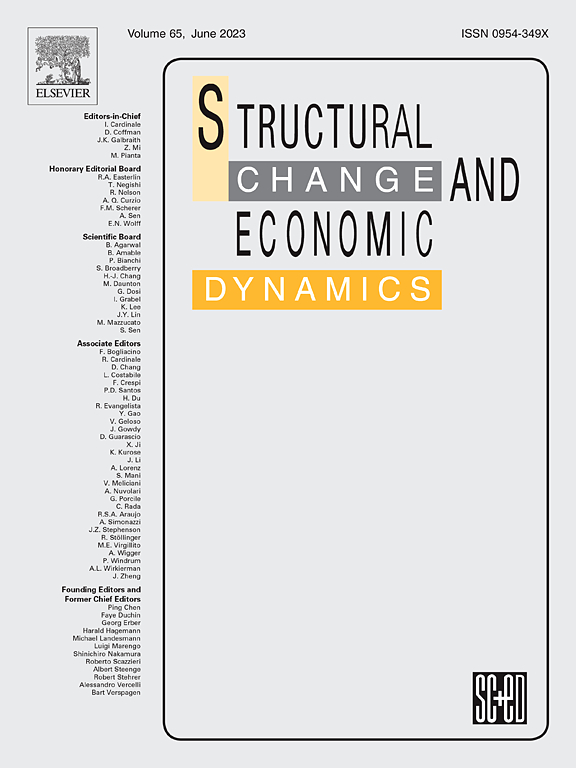利用贝叶斯多层次模型检验投资率是否长期停滞不前
IF 5
2区 经济学
Q1 ECONOMICS
引用次数: 0
摘要
继 Hansen(1939 年)之后,我们在一个大型企业层面面板上使用贝叶斯多层次("混合效应")模型来分离自主投资需求的长期下降,并检验其原因。企业层面的回归结果表明,投资放缓是自 1998 年以来 21 个发达经济体企业的长期特征,并一直持续到现在(2020 年)。我们利用集团层面("宏观")的回归,试图解释企业自主投资需求长期下降的原因。我们发现,相对投资机会的短缺--正如最初的 "世俗停滞论"--可以解释这种世俗性放缓中 40% 的变化。本文章由计算机程序翻译,如有差异,请以英文原文为准。
Testing for secular stagnation in investment rates using a Bayesian multilevel model
Following Hansen (1939), we use a Bayesian multilevel (‘mixed effects’) model on a large firm-level panel to isolate the secular decline in autonomous investment demand and test for causes of it. Our firm-level regression shows that the investment slowdown is a long-standing feature across firms in 21 advanced economies since 1998 and continuing until the present (2020). Using a group-level (‘macro’) regression, we try to explain firms’ estimated secular decline in autonomous investment demand. We find that a shortage of relative investment opportunities – as per the original secular stagnation thesis – explains 40% of the variation in this secular slowdown.
求助全文
通过发布文献求助,成功后即可免费获取论文全文。
去求助
来源期刊

Structural Change and Economic Dynamics
ECONOMICS-
CiteScore
9.60
自引率
4.90%
发文量
159
期刊介绍:
Structural Change and Economic Dynamics publishes articles about theoretical, applied and methodological aspects of structural change in economic systems. The journal publishes work analysing dynamics and structural breaks in economic, technological, behavioural and institutional patterns.
 求助内容:
求助内容: 应助结果提醒方式:
应助结果提醒方式:


